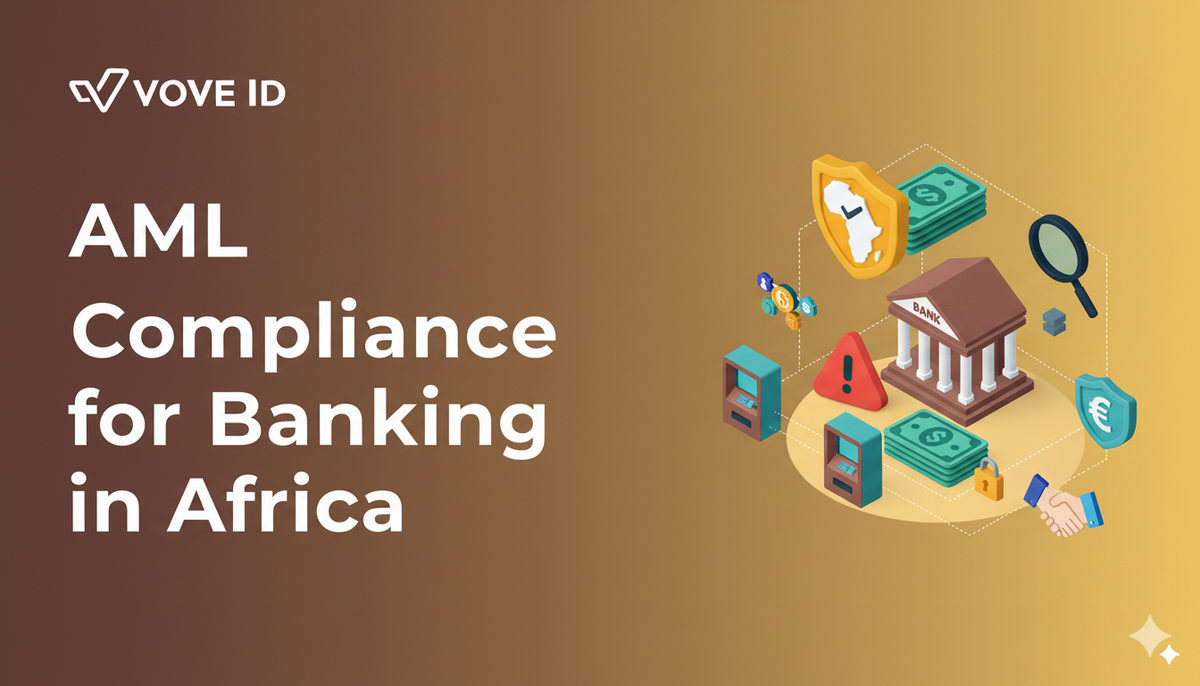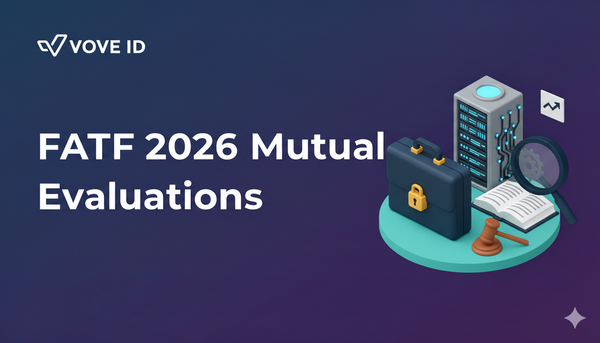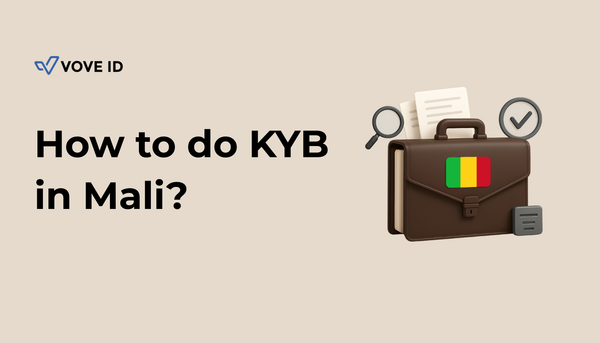AML Compliance for Banking in Africa: A 2025 Guide for Startups
Discover the essentials of AML compliance for banking in Africa. Learn the principles, challenges, and how fintech startups can streamline AML with digital identity solutions like VOVE ID.

Anti-Money Laundering (AML) compliance has become a cornerstone of trust in Africa’s banking and fintech ecosystem. For startups in payments, digital wallets, crypto, or lending, understanding AML principles is no longer optional. Investors, regulators, and partner banks expect early-stage companies to adopt the same safeguards against money laundering, terrorist financing, and fraud as more established institutions.
This guide breaks down the key principles of AML for banking in Africa, explains why they matter for startups, and highlights how digital solutions like VOVE ID can simplify compliance.
Global AML Standards and Their Local Adoption
AML frameworks in Africa draw from international standards set by organizations such as:
- FATF (Financial Action Task Force): Provides global recommendations on preventing money laundering and terrorist financing.
- Basel Committee on Banking Supervision: Offers guidance on risk management and customer due diligence.
- Wolfsberg Group: Focuses on best practices in correspondent banking and financial crime prevention.
African countries adopt these principles through regional bodies like GIABA (West Africa) and ESAAMLG (East and Southern Africa), as well as national regulators such as central banks and financial intelligence units. While implementation levels vary, the direction is clear: banks and fintechs must build AML controls into their operations from the start.
Core AML Principles for Banks and Startups
Whether you are a licensed bank or a fintech startup partnering with one, AML compliance revolves around a few key pillars:
- Customer Due Diligence (CDD): Verifying the identity of customers before onboarding them, and assessing the risks they pose.
- Know Your Customer (KYC) & Know Your Business (KYB): Collecting and validating customer and business identity information to prevent anonymous or fraudulent use of financial services.
- Ongoing Transaction Monitoring: Detecting unusual or suspicious patterns, such as large cash deposits, cross-border flows, or structuring.
- Suspicious Activity Reporting (SAR): Filing reports with the relevant Financial Intelligence Unit (FIU) when red flags arise.
For startups, embedding these principles early makes it easier to partner with banks and scale across markets.
African Context: Challenges and Opportunities
Africa’s 54 countries apply AML principles in different ways, with varying levels of enforcement and oversight. Some key markets illustrate this diversity:
- Nigeria: The Central Bank of Nigeria (CBN) and the Nigerian Financial Intelligence Unit (NFIU) enforce strict AML and KYC rules. Fintechs must align with CBN guidelines to operate legally, particularly in payments and digital wallets.
- Kenya: The Central Bank of Kenya (CBK) requires financial institutions and mobile money operators like M-Pesa to conduct robust KYC and report suspicious transactions. This is especially critical given Kenya’s dominance in mobile money adoption.
- South Africa: The Financial Intelligence Centre (FIC) enforces the FIC Act, updated in 2023, with expanded obligations for fintechs, crypto platforms, and other “accountable institutions.”
While this fragmented landscape creates complexity, startups that can adapt quickly across jurisdictions gain a competitive edge.
Why AML Matters for Startups
Startups often view compliance as a cost, but in practice it’s a growth enabler. Real-world cases show the risks of neglecting AML:
- In 2022, the Central Bank of Nigeria fined five commercial banks a combined $1.5 billion for AML/KYC failures. While startups weren’t directly targeted, the message was clear: non-compliance brings heavy consequences.
- In South Africa, fintech startups have faced license withdrawals after failing to implement adequate customer due diligence under the FIC Act.
- In Kenya, several mobile lending apps were delisted from Google Play in 2022 after the CBK flagged them for poor AML and KYC practices.
For ambitious fintech founders, getting AML right isn’t just about compliance — it’s your ticket to scaling faster, earning investor trust, and standing out in a competitive market.
Digital AML & Identity Verification Solutions
The future of AML in Africa is digital. Startups and banks are turning to technologies that make compliance both effective and efficient:
- eKYC & Digital Identity: Remote verification of customers using government IDs, biometrics, and mobile data.
- KYB Checks: Verifying the legitimacy of businesses, including directors and ultimate beneficial owners.
- API Integrations: Embedding verification directly into onboarding and payments flows.
This is where VOVE ID adds value. By providing secure and scalable digital identity verification for both individuals and businesses, VOVE ID helps startups in Africa meet AML requirements while keeping customer onboarding seamless. Instead of spending months building manual processes, founders can integrate VOVE ID and focus on growth.
According to the latest available GSMA data (2023), Africa processed over $1.2 trillion in mobile money transactions, representing nearly half of the continent’s GDP. While this drives financial inclusion, it also increases AML risks if not monitored effectively.
Conclusion
AML compliance is no longer just a banking issue — it’s a startup priority. By adopting global AML principles, navigating Africa’s diverse regulatory landscape, and leveraging digital solutions like VOVE ID, early-stage companies can build trust, attract investment, and expand across borders.
Startups that treat AML as a growth strategy, not just a legal checkbox, will be the ones leading Africa’s fintech revolution in 2025 and beyond.




